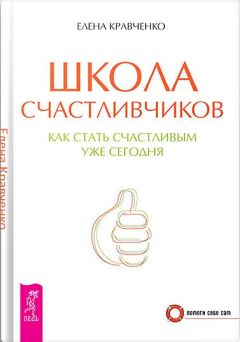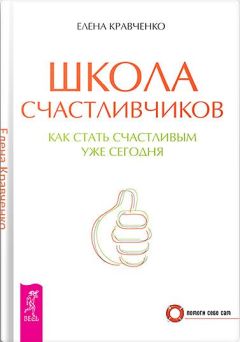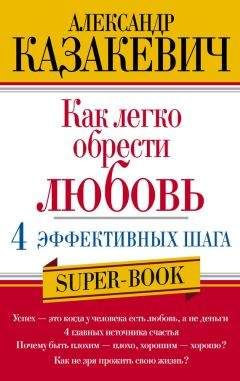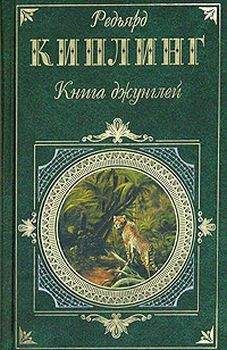Редьярд Киплинг - Английский с Редьярдом Киплингом. Рикки-Тикки-Тави / Rudyard Kipling. Rikki-Tikki-Tavi
“All mongooses are like that,” said her husband. “If Teddy doesn’t pick him up by the tail, or try to put him in a cage, he’ll run in and out of the house all day long. Let’s give him something to eat.”
They gave him a little piece of raw meat. Rikki-tikki liked it immensely, and when it was finished he went out into the veranda and sat in the sunshine and fluffed up his fur to make it dry to the roots. Then he felt better.
“There are more things to find out about in this house (в этом доме больше вещей, о которых /можно/ разузнать; to find out – узнать, разузнать, выяснить),” he said to himself (сказал он себе), “than all my family could find out in all their lives (чем вся моя семья смогла бы разузнать за всю свою жизнь). I shall certainly stay and find out (конечно, я останусь /здесь/ и /все/ выясню; to stay – останавливаться; задержаться /где-либо/).”
He spent all that day roaming over the house (он провел весь тот день, путешествуя по дому; to spend – тратить, расходовать; проводить /о времени/; to roam – бродить, путешествовать). He nearly drowned himself in the bath-tubs (он чуть не утонул в ваннах; to drown – тонуть; bath – ванна; купание /в ванне/; tub – бочонок, бочка; ванна), put his nose into the ink on a writing table (засунул нос в чернила на письменном столе; to write – писать), and burned it on the end of the big man’s cigar (и обжег его о кончик сигары большого человека; to burn – гореть, жечь), for he climbed up in the big man’s lap to see how writing was done (потому что взобрался к нему на колени, чтобы посмотреть, как делается письмо = как /люди/ пишут; lap – подол; пола, фалда; колени /верхняя часть ног у сидящего человека/). At nightfall he ran into Teddy’s nursery to watch how kerosene lamps were lighted (с наступлением ночи он забежал в детскую Тэдди, чтобы посмотреть, как зажигают керосиновые лампы; to run; light – свет; освещение; to light – зажигать/ся/), and when Teddy went to bed Rikki-tikki climbed up too (когда же Тэдди пошел спать: «в постель», Рикки-Тикки влез тоже = за ним).
“There are more things to find out about in this house,” he said to himself, “than all my family could find out in all their lives. I shall certainly stay and find out.”
He spent all that day roaming over the house. He nearly drowned himself in the bath-tubs, put his nose into the ink on a writing table, and burned it on the end of the big man’s cigar, for he climbed up in the big man’s lap to see how writing was done. At nightfall he ran into Teddy’s nursery to watch how kerosene lamps were lighted, and when Teddy went to bed Rikki-tikki climbed up too.
But he was a restless companion (но он был беспокойным товарищем; rest – отдых, покой), because he had to get up and attend to every noise all through the night (потому что ему приходилось вставать и уделять внимание = он вскакивал и прислушивался к каждому шуму = шороху всю ночь; to get up – вставать /с постели/; to attend – уделять внимание, быть внимательным; noise – шум, гам), and find out what made it (и /шел/ узнать, что создало его = в чем дело). Teddy’s mother and father came in, the last thing, to look at their boy (мать и отец Тэдди вошли /в детскую/ напоследок посмотреть на = проведать своего мальчика; the last thing – в последнюю минуту; в последнюю очередь, напоследок), and Rikki-tikki was awake on the pillow (а Рикки-Тикки не спал, /он сидел/ на подушке; awake – не спящий, проснувшийся; to be awake – бодрствовать). “I don’t like that (это мне не нравится),” said Teddy’s mother. “He may bite the child (он может укусить ребенка).” “He’ll do no such thing (он не сделает такой вещи = ничего подобного),” said the father. “Teddy’s safer with that little beast than if he had a bloodhound to watch him (Тэдди в большей безопасности с этим маленьким зверьком, чем если бы у него был бладхаунд,[1] чтобы охранять его = с любой сторожевой ищейкой; safe – невредимый; защищенный от опасности, в безопасности; to watch – наблюдать, смотреть; караулить; сторожить, охранять; присматривать). If a snake came into the nursery now (если бы сейчас в детскую вошла = вползла змея) – ”
But Teddy’s mother wouldn’t think of anything so awful (но мать Тэдди не хотела и думать о чем-либо настолько ужасном = o таких ужасных вещах).
But he was a restless companion, because he had to get up and attend to every noise all through the night, and find out what made it. Teddy’s mother and father came in, the last thing, to look at their boy, and Rikki-tikki was awake on the pillow. “I don’t like that,” said Teddy’s mother. “He may bite the child.” “He’ll do no such thing,” said the father. “Teddy’s safer with that little beast than if he had a bloodhound to watch him. If a snake came into the nursery now – ”
But Teddy’s mother wouldn’t think of anything so awful.
Early in the morning Rikki-tikki came to early breakfast in the veranda riding on Teddy’s shoulder (рано утром Рикки-Тикки явился на веранду к раннему = первому завтраку, сидя на плече Тэдди; early – ранний; рано; to ride – ехать/сидеть верхом), and they gave him banana and some boiled egg (и они дали ему банан и немного вареного яйца; to give; to boil – варить/ся/, кипятить/ся/). He sat on all their laps one after the other (он посидел поочередно на коленях у каждого; one after the other – один за другим, друг за другом), because every well-brought-up mongoose always hopes to be a house mongoose some day and have rooms to run about in (потому что всякий хорошо воспитанный мангуст всегда надеется стать однажды домашним животным и иметь комнаты, чтобы бегать по ним /взад и вперед/; to bring up – вскармливать, воспитывать); and Rikki-tikki’s mother (а мать Рикки-Тикки) (she used to live in the general’s house at Segowlee (она раньше жила в доме генерала в Сигаули; used to + infinitive – раньше, бывало)) had carefully told Rikki what to do if ever he came across white men (заботливо рассказала = объяснила ему, что делать, если он когда-нибудь встретится с белыми людьми; to come across – /случайно/ встретиться с /кем-либо/).
Early in the morning Rikki-tikki came to early breakfast in the veranda riding on Teddy’s shoulder, and they gave him banana and some boiled egg. He sat on all their laps one after the other, because every well-brought-up mongoose always hopes to be a house mongoose some day and have rooms to run about in; and Rikki-tikki’s mother (she used to live in the general’s house at Segowlee) had carefully told Rikki what to do if ever he came across white men.
Then Rikki-tikki went out into the garden to see what was to be seen (потом Рикки-Тикки вышел в сад, чтобы увидеть то, что должно было быть увидено = чтобы хорошенько осмотреть его). It was a large garden (это был большой сад), only half cultivated (только наполовину возделанный; to cultivate – возделывать, обрабатывать), with bushes, as big as summer-houses, of Marshal Niel roses (с кустами роз Маршаль Ниэль, такими большими, как = высотой с летний дом), lime and orange trees (лимонными и апельсиновыми деревьями; lime – лайм[2]), clumps of bamboos (зарослями бамбука), and thickets of high grass (и чащами высокой травы). Rikki-tikki licked his lips (Рикки-Тикки облизнул губы; to lick – лизать). “This is a splendid hunting-ground (это превосходный участок для охоты; to hunt – охотиться),” he said, and his tail grew bottle-brushy at the thought of it (и его хвост стал = распушился, как щетка для бутылок, при этой мысли; to grow – расти, вырастать; становиться; thought – мысль), and he scuttled up and down the garden (и он стал шнырять взад и вперед по саду; to scuttle – поспешно бежать; up and down – вверх и вниз, поднимаясь и опускаясь; взад и вперед; туда и сюда), snuffing here and there till he heard very sorrowful voices in a thorn-bush (обнюхивая там и тут, пока он не услышал очень печальные голоса среди /ветвей/ терновника; to snuff – втягивать носом; вдыхать; нюхать, обнюхивать; thorn – колючка, шип; колючее растение; bush – куст, кустарник).
Then Rikki-tikki went out into the garden to see what was to be seen. It was a large garden, only half cultivated, with bushes, as big as summer-houses, of Marshal Niel roses, lime and orange trees, clumps of bamboos, and thickets of high grass. Rikki-tikki licked his lips. “This is a splendid hunting-ground,” he said, and his tail grew bottle-brushy at the thought of it, and he scuttled up and down the garden, snuffing here and there till he heard very sorrowful voices in a thorn-bush.
It was Darzee, the Tailorbird, and his wife (это был Дарзи, Птица-портной, и его жена). They had made a beautiful nest by pulling two big leaves together (они устроили прекрасное гнездо, cтянув два больших листа; to pull – тянуть, тащить; натягивать, растягивать; together – вместе) and stitching them up the edges with fibers (и сшив их края волокнами /листьев/; to stitch – шить, пришивать; fiber – волокно), and had filled the hollow with cotton and downy fluff (а пустое пространство наполнили хлопком и мягким пухом; hollow – полость, пустое пространство /внутри чего-либо/; downy – пушистый, покрытый пухом; пуховый /сделанный из пуха/; мягкий, ласковый). The nest swayed to and fro (гнездо покачивалось туда-сюда; to sway – качать/ся/, колебать/ся/), as they sat on the rim and cried (а они сидели на его краю и плакали; to cry – кричать; плакать, рыдать).
“What is the matter (в чем дело)?” asked Rikki-tikki (спросил Рикки-Тикки).
“We are very miserable (мы очень несчастны),” said Darzee. “One of our babies fell out of the nest yesterday (один из наших малышей вчера выпал из гнезда; to fall out – выпадать), and Nag ate him (и Наг съел его; to eat).”
“H’m (гм)!” said Rikki-tikki, “that is very sad (это очень печально) – but I am a stranger here (но я здесь посторонний = недавно; stranger – иностранец, чужестранец; незнакомец, посторонний). Who is Nag (кто такой Наг)?”




